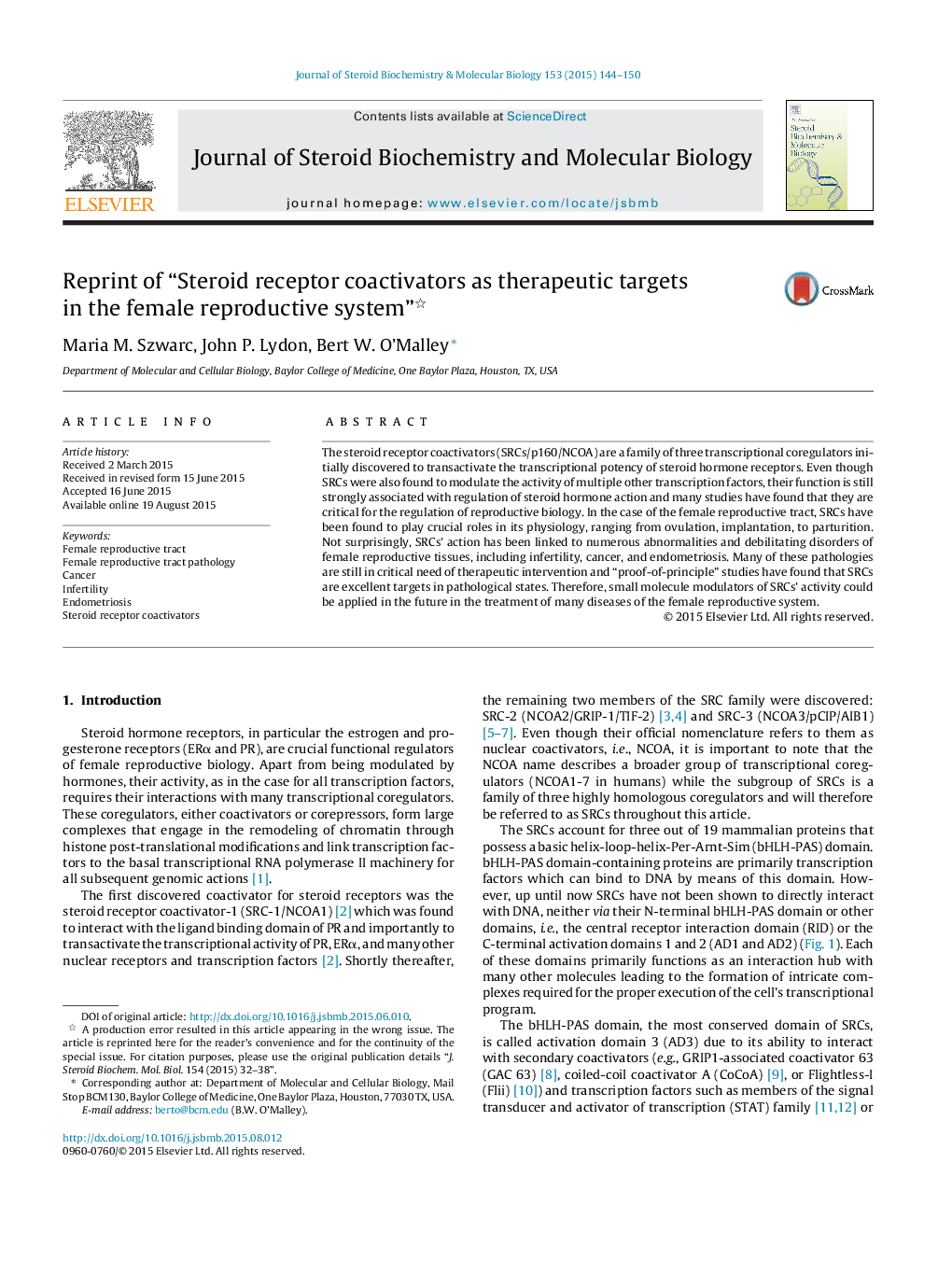| Article ID | Journal | Published Year | Pages | File Type |
|---|---|---|---|---|
| 1991265 | The Journal of Steroid Biochemistry and Molecular Biology | 2015 | 7 Pages |
•SRCs regulate female reproductive biology, from ovulation to parturition.•Deregulation of SRCs may be causal in the development of reproductive pathologies.•Modulators of SRCs could be used to treat diseases of the female reproductive system.
The steroid receptor coactivators (SRCs/p160/NCOA) are a family of three transcriptional coregulators initially discovered to transactivate the transcriptional potency of steroid hormone receptors. Even though SRCs were also found to modulate the activity of multiple other transcription factors, their function is still strongly associated with regulation of steroid hormone action and many studies have found that they are critical for the regulation of reproductive biology. In the case of the female reproductive tract, SRCs have been found to play crucial roles in its physiology, ranging from ovulation, implantation, to parturition. Not surprisingly, SRCs' action has been linked to numerous abnormalities and debilitating disorders of female reproductive tissues, including infertility, cancer, and endometriosis. Many of these pathologies are still in critical need of therapeutic intervention and “proof-of-principle” studies have found that SRCs are excellent targets in pathological states. Therefore, small molecule modulators of SRCs' activity could be applied in the future in the treatment of many diseases of the female reproductive system.
